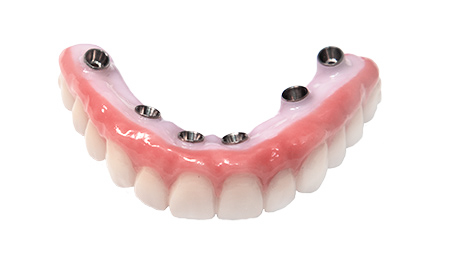What Does Dental Sense Mean?
Table of ContentsThe Of Dental SenseAll about Dental SenseThe Greatest Guide To Dental SenseUnknown Facts About Dental Sense
are clinical gadgets surgically dental implanted into the jaw to bring back an individual's ability to chew or their appearance. They supply assistance for synthetic (phony) teeth, such as crowns, bridges, or dentures. When a tooth is lost because of injury or condition, an individual can experience complications such as fast bone loss, defective speech, or modifications to eating patterns that lead to pain.Dental dental implant systems consist of a dental implant body and oral implant joint and may also consist of a joint addiction screw. Cosmetic dentistry services. The dental implant body is surgically inserted in the jawbone instead of the tooth's root. The oral implant abutment is typically connected to the implant body by the abutment fixation screw and expands via gum tissues right into the mouth to sustain the affixed artificial teeth
(https://medium.com/@matthewmusic33101/about)Structure of The Oral Implant System choosing dental implants, talk with your oral supplier regarding the potential advantages and risks, and whether you are a prospect for the treatment. Things to think about: Your total health is an essential aspect in determining whether you are a good prospect for oral implants, how long it will take to heal, and how much time the implant may remain in place.
Smoking may affect the recovery process and decrease the lasting success of the dental implant. The recovery process for the dental implant body might take numerous months or longer, during which time you usually have a short-lived joint instead of the tooth. the oral implant procedure: Very carefully follow the oral hygiene guidelines provided to you by your dental company.
Not known Details About Dental Sense
Implant failing can lead to the requirement for an additional operation to fix or change the implant system. Recovers the capability to eat Restores aesthetic appearance Assists keep the jawbone from reducing as a result of bone loss Protects the health and wellness of the surrounding bone and gums Aids maintain nearby (close-by) teeth steady Boosts lifestyle Damages to bordering all-natural teeth throughout dental implant positioning Injury to the surrounding tissues throughout surgical procedure, such as sinus perforation Injury throughout surgical treatment (for example, crack of bordering jawbone) Inadequate feature, such as seeming like the teeth do not bite together generally A feeling that the tooth is loose or turning in position resulting from a joint screw loosening Implant body failing (looseness of the dental implant body) due to systemic infection, which might be more probable in clients with unchecked diabetes because of regional infection in bone and gums supporting the dental implant body because of delayed healing, which might be extra likely in individuals that smoke Trouble cleansing the gum tissues around the implant, resulting in poor oral hygiene Without treatment periodontal condition Post-surgical numbness as a result of nerve impingement or damage Constantly inform healthcare suppliers and imaging technicians that you have dental implants prior to any kind of magnetic resonance imaging (MRI) or x-ray procedures.
FDA is not aware of any kind of damaging occasions reported for MRI or x-ray procedures with dental implants. Oral implants systems are commonly made from products that comply with international consensus criteria of the International Organization for Standardization (ISO) or ASTM International. These criteria have information of what makes a safe product.

An oral implant is a framework that replaces a missing tooth. With screw-like devices, the cosmetic surgeon inserts a dental implant into the jawbone, and it acts as a support for a man-made tooth, called a crown.
The Of Dental Sense
Some people are not qualified for dental implant surgery. It is for oral surgeons to operate people with: severe illnessuncontrollable metabolic diseasebone or soft tissue illness or infectionIf these concerns are solved, an individual can have the surgical procedure. In, dental cosmetic surgeons avoid operating individuals with: If individuals with any of the above go through dental implant surgery, there is a higher danger of the dental implant failing.

Dental dental implant surgical treatment is a tailored procedure. It's not the same for every person. The adhering to gives a basic introduction of what you can anticipate your dentist, oral surgeon, periodontist or prosthodontist to do: Put the dental implant operatively. Provide you time to heal. Affix the blog post and final crown, bridge or denture.
Next off, your doctor will thoroughly place the oral implant right into your jaw. If your implant is near the front of your mouth, your dentist will certainly make a short-lived tooth for you to wear until you heal.
Fascination About Dental Sense
Your provider can tell you what to anticipate in your situation. During the recovery phase, your jawbone must fuse to the oral implant. This process, called osseointegration, is vital for security and long-term success. This procedure can take anywhere from three to 9 months. In some cases, it might take much longer.
Once your implant heals, your dental expert can affix the abutment (tiny connector message) and your final reconstruction (crown, bridge or denture). This typically takes regarding one hour to finish and might need a second minor surgical treatment. You shouldn't feel any type of discomfort during your oral implant treatment since your service provider will use medication to numb your periodontals.